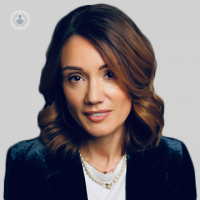What do I do if my child is being bullied? Tips for parents.
Escrito por:Sometimes it’s hard to know if your child is being bullied at school. Children who are bullied often try to hide the situation from their parents, especially if they are frightened or believe that a parents´ intervention may be unhelpful or even make things worse. Maite Ferrin, a child and adolescent psychiatrist at Re:Cognition Health in London, shares with us some tips for parents on how to help their child if they’re being bullied.

How would I know if my child is being bullied?
There are a variety of indications of bullying but it depends on the child. Some kids who are bullied may refuse to go to school or show anxiety around the topic of school. They may have difficulties sleeping or show irritable, depressed and even aggressive behaviour. Other children may deliberately self-harm and, in the most severe cases, even have suicidal thoughts. The possibility of bullying needs to be considered in any child who presents with any sudden changes in mood and/or behaviour.
What can I do to help?
If your child suffers from school bullying, take plenty of time to carefully listen to your child and try to calm them down; provide reassurance that an action will be taken and that the situation will improve after that.
- Don’t minimise the importance of what your child is saying, and do not blame your child for anything that is happening, as it will only increase your child´s frustration and anxiety and the possibility that your child hides what’s really going on.
- Don't encourage your child to retaliate or to take any violent actions. Rather, suggest that they walk away and seek help at school.
- Establish the facts in order to discuss with the school or college. Reassure your child that you will not do anything without discussing it with them first. Find out what your child wants to happen and discuss with them the steps you are going to take and how you are going to protect them.
- Discuss the situation with your child's school teacher or head teacher.
- Finally, encourage your child to get involved in activities to promote their confidence and social skills, especially outside school if that’s where the bullying is taking place.ç
How to deal with online bulling
If your child suffers cyberbullying, talk to them about who they're talking to online and encourage them to think before talking to people they don't know in person. Discuss with your child the concept of 'real friends' and the risks of not really knowing who the person is online. Encourage your child to block someone who they don't want to talk to or if they feel any pressure.
Parents should become familiar with social networking sites and chat programmes that their children use. They should look into built-in safety features that devices and mobile networks are offering, such as parental control software, filtering options, etc. If you need some guidance, there is a free safety helpline at 0808 8005002 for parents and carers provided by the NSPCC.
ABA and the Sex Education Forum (SEF) have also produced a free guide for parents and carers with advice on talking to children about healthy and safe relationships.
If you discover misconduct between your child and someone online or that someone has acted inappropriately towards your child, contact the Child Exploitation and Online Protection Centre (CEOP).
How should teachers handle bullying?
Schools must have an anti-bullying policy which sets out the measures that will be taken to prevent and manage all forms of bullying between pupils. According to scientific evidence, published by professors Menesini and Salmivalli in 2017, the most effective interventions are those that focus on school and involve all of the educational community.
If you sense your child might be a victim of bullying or your child could be bullying others, visit Maite Ferrin’s profile and book an appointment to see her.


